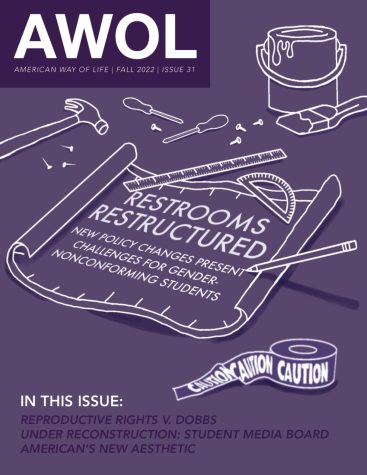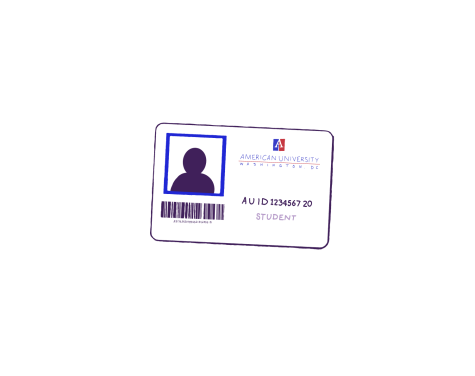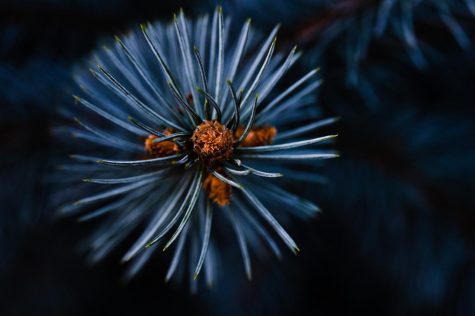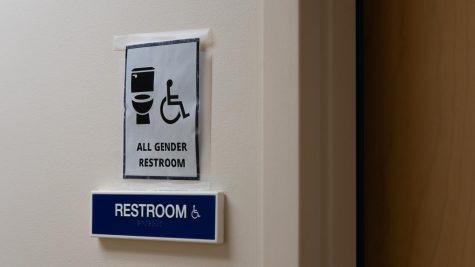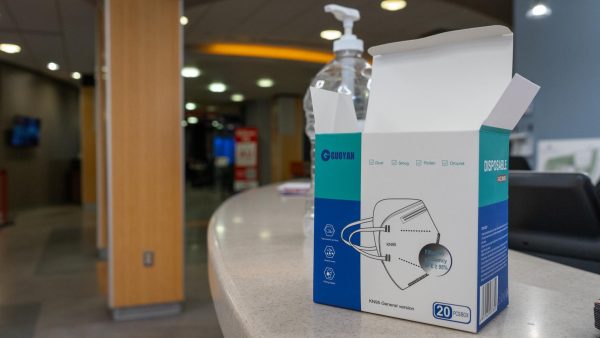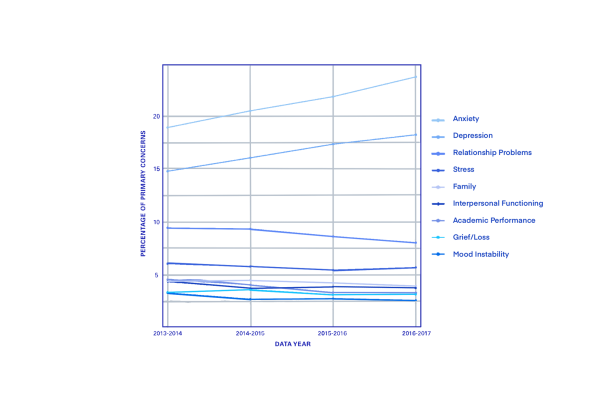Unprepared for periods
With a spike in period poverty around the country, AU students question whether the university cares about their menstrual needs.
American University provides menstrual products in three out of 44 buildings on campus as of November 2022. Therefore, menstruating students have limited access to free menstrual products on AU’s campus.
American University provides free products in Kerwin Hall, Kogod School of Business and Bender Library. However, with a student body of over 14,000 to accommodate, the university lacks equal access to menstrual products, leaving students with concerns about health and safety, according to the President of Day for Girls Emily Fafard. Day for Girls club advocates for menstrual equity and the de-stigmatization of menstruation on campus.
“This is a public health crisis,” Fafard said. “If you’re not getting the products that you need and if you’re not taking care of yourself on your period, it’s a serious health problem.”
Accessible menstrual products are currently limited to three buildings. Students may also purchase products from campus convenience stores like The Pod or Eagle’s Nest, although pads and tampons are not consistently stocked.
Due to supply chain issues related to the coronavirus, store shelves are missing certain menstrual products and increasing their prices, according to a National Public Radio article from June 2022.
Students and campus organizations, such as Days for Girls, have discussed the effects of the university’s lack of menstrual products in campus bathrooms. Without products being provided in public spaces, menstruating students must supply their own.
“I remember once, I randomly got my cycle early, so I went to the campus store to look for some pads, but I couldn’t find a single box or product, which was really shocking,” Senior Rachana Pokkuluri said. “A lot of students treat campus as their home, so you’d expect the university to be prepared, even if it’s just one size or one product.”
The lack of product access can pose a financial barrier to menstruating students. A September 2021 research study commissioned by INTIMINA, a menstrual product company in Sweden, examined 2,000 women’s experiences with period poverty. According to the study, the average menstruating person spends $13.25 a month on period products. The absence of products in campus bathrooms requires students to invest hundreds per year in their own supplies.
“Period poverty within college campuses is both an economic and hygienic problem,” Fafard said.
“Period poverty affects about 14% of university students and about one in 10 cis-women on college campuses,” Fafard said.
Days for Girls plans to advocate for free menstrual products in campus bathrooms during this school year, according to Fafard. In addition, within her role as president, Fafard says she aims to form a year-long project of collecting and analyzing data to advance the goal of product accessibility in restrooms.
“We’re gonna start with a menstrual needs survey, surveying the student body about period poverty on our campus specifically, with a goal of presenting that information either to AUSG or the school administration,” Fafard said. “We’ll say, here’s this critical need on this campus, and as an institution, we believe that you should be providing for this need.”
A period product accessibility poll created by AWOL allowed students to provide their opinions on the state of menstrual equity on campus. Of the 20 students surveyed, 75% said they felt that AU does not have adequate no-cost menstrual product accessibility. In addition, every respondent said that the university should provide menstrual products in all bathrooms on campus.
A 2021 study on college campuses revealed a direct correlation between cis-gendered women experiencing period poverty and depression.
Dr. Jhumka Gupta, an associate professor in the Department of Global and Community Health at George Mason University, describes the impacts of not having menstrual products available for students.
“Mental health impacts are a very tough concern among college campuses now,” Gupta said. “I think addressing period poverty is one way to address mental health among [the] student population. Having to worry about disrupting attendance or class and educational outcomes are all important.”
Gupta says that a campus as progressive as AU may still struggle to provide period products. due to “silent biases.”
“I think there’s a stigma against menstruation and mental health,” Gupta said. “I think it’s really important to cut through that, especially in a public health space.”
According to a statement by AU, the university is creating a working group with both undergraduate and graduate students as well as staff to discuss their plan to follow the Expanding Student Access to Period Products Act of 2022 passed on Jan. 24. The law requires the district’s schools and universities to install period product dispensers with tampons and pads within women’s and gender-neutral restrooms in order to “serve the needs of students at all times throughout the calendar year.”
“We are developing an action plan to help us review a range of approaches to the Period Products Act of 2022 by Dec. 2, which is well in advance of the late January implementation deadline,” the university said.
Because people who menstruate include non-binary individuals, transgender men and other non-female-identifying individuals, D.C. Councilmember Brooke Pinto has pushed for free menstrual products to be available in all bathrooms. Pinto helped write the Expanding Student Access to Period Products Act of 2022.
In a press release on Jan. 4, Pinto said “The lack of accessible period products adversely impacts women, girls and transgender men’s ability to receive an education, care for their reproductive health and participate more broadly in society.”
This article is from AWOL’s 31st print edition.
Casey Bacot is a junior studying political science and journalism.
Shreya Jyotishi is a freshman studying CLEG.

Casey Bacot (she/her) is a senior studying journalism. She enjoys tea, hanging out with her cat, and video games.



